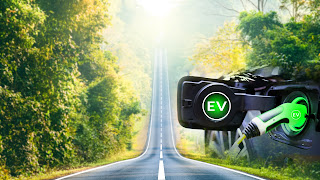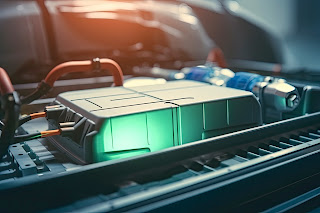Introduction:
As India embraces the rise of electric vehicles (EVs), it becomes imperative to ensure their safety, efficiency, and compliance with the country's rules and standards. Let's explore the fascinating world of EV testing and homologation in India, delving into its significance and key aspects.
1. Safety Assurance:
Safety is a paramount concern in EV testing. In India, the Automotive Industry Standards (AIS) prescribe the safety regulations for EVs. These standards encompass crashworthiness, occupant protection, electrical safety, and battery performance. Through rigorous testing, EV manufacturers verify compliance with these AIS regulations to ensure the safety of passengers, pedestrians, and the environment. Evaluating structural integrity, battery performance, and charging infrastructure compatibility ensures that EVs are safe and reliable on Indian roads.
2. Performance and Efficiency Evaluation:
Apart from safety, EV homologation in India focuses on assessing the performance and efficiency of these vehicles. Key parameters include acceleration, top speed, range, energy consumption, and emissions. The Bureau of Energy Efficiency (BEE) provides energy efficiency standards for EVs in India. Manufacturers must adhere to these standards to ensure the energy efficiency of their vehicles. Additionally, tests are conducted to determine the performance of EV components like batteries, motors, and charging systems. These evaluations ensure that EVs deliver optimal performance while minimizing environmental impact.
3. Indian Regulatory Framework:
India has established a regulatory framework to govern the EV industry. The Ministry of Road Transport and Highways (MoRTH) and the Automotive Research Association of India (ARAI) play pivotal roles in setting standards and regulations. The Central Motor Vehicles Rules (CMVR) provide the legal framework for EV testing and homologation. Manufacturers must comply with CMVR requirements to obtain certifications and approvals for their EVs. This regulatory compliance ensures consumer protection and helps build a robust and sustainable EV ecosystem in India.
4. FAME Scheme:
The Faster Adoption and Manufacturing of Hybrid and Electric Vehicles (FAME) scheme launched by the Government of India promotes the adoption of EVs. Under this scheme, incentives are provided for EV manufacturers and buyers. To avail of these incentives, manufacturers must meet specific eligibility criteria, including compliance with testing and homologation standards. The FAME scheme acts as a catalyst for the growth of the EV industry while encouraging compliance with Indian regulations.
Conclusion:
Electric vehicle testing and homologation in India are vital for ensuring the safety, performance, and compliance of EVs. By adhering to the AIS regulations, manufacturers guarantee the safety of their vehicles on Indian roads. Evaluating performance, efficiency, and adherence to BEE standards ensures that EVs meet the country's requirements for energy efficiency. Compliance with the CMVR framework and the FAME scheme accelerates the adoption of EVs, contributing to a cleaner and greener future for India.
In India's journey towards sustainable transportation, comprehensive testing and homologation processes are key to building a robust EV ecosystem. By upholding safety, efficiency, and regulatory compliance, EVs can revolutionize mobility, reduce pollution, and propel India towards a sustainable future.












No comments:
Post a Comment